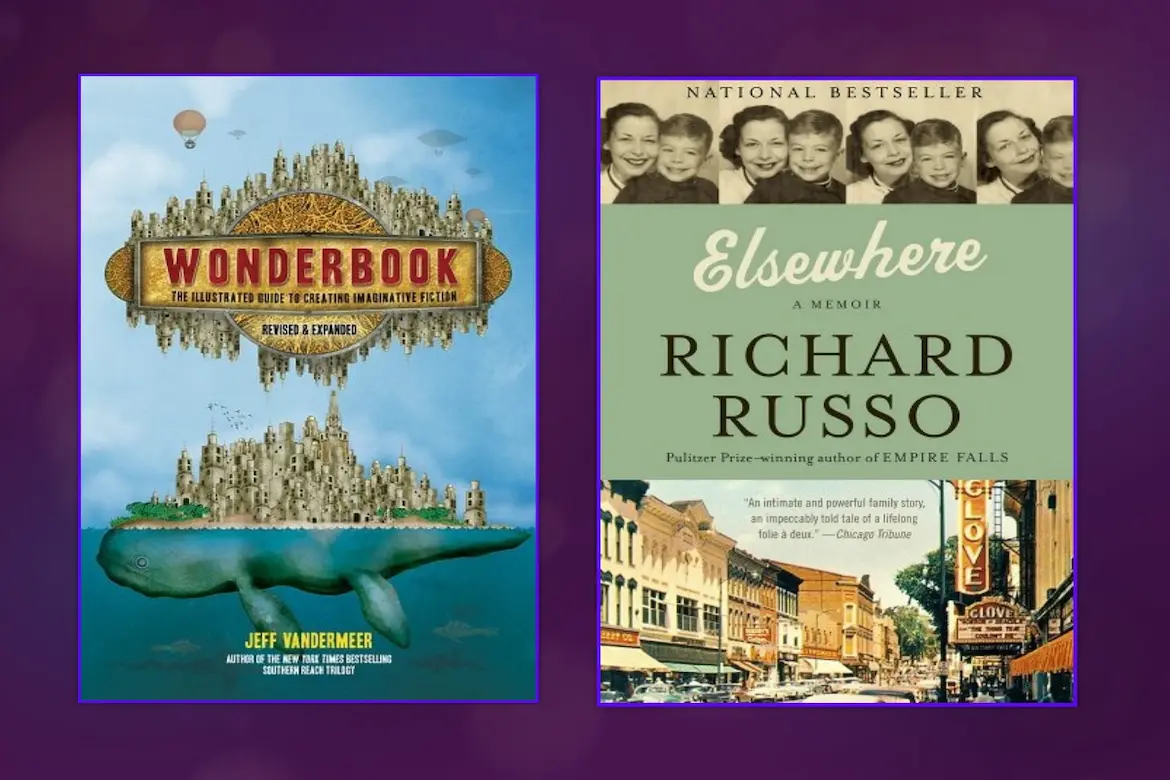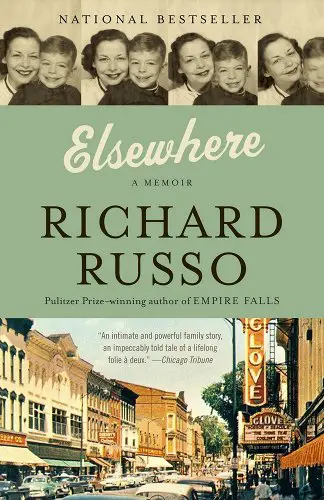In this updated LitStack Rec, we take a look back at Wonderbook and Elsewhere, and reiterate our hearty recommendation to add these two titles to your TBR list.

In This LitStack Rec:
Wonderbook: The Illustrated Guide to Creating Imaginative Fiction by Jeff VanderMeer


Here’s something new for me: recommending a book that I haven’t read yet. Jeff VanderMeer’s “Wonderbook: The Illustrated Guide to Creating Imaginative Fiction” just hit the shelves on October 15, 2013, and it’s already gotten a lot of buzz. I had seen a few publicity blurbs and Facebook posts on it, and read a glowing review in my local paper. Then, on Tuesday, it was announced as one of three books shortlisted in the Best Non-Fiction category of the upcoming BSFA Awards (British Science Fiction Association).
I had actually checked out “Wonderbook” from the library a few weeks back, based on the newspaper review and on my admiration of Jeff VanderMeer’s “Of Saints and Madmen”, which still is one of the
creepiest, coolest speculative fiction books I have read. But I didn’t keep the library book long – all I had to do was thumb through the pages once to know that I HAD to own this book. My copy came in the mail just yesterday.
Beautifully illustrated by Jeremy Zerfoss (and “many others”), and drawing on insight from some pretty high level contributors (George R. R. Martin, Neil Gaiman, Michael Moorcock, Catherynne M. Valente, Ursula K. Le Guin and Joe Abercrombie, to name just a few), “Wonderbook” is bright, vibrant, a touch spastic and just plain thick with ideas, input and inspiration. This is not your typical “how to” book! Treating its subject matter as some kind of whimsical and fanciful bestiary, it is literally brimming with exercises that get you thinking and creating and imagining. It truly feels like you are embarking on a trip into an exciting and engaging wonderland. I can’t wait to get started!
—Sharon Browning
Titles by Jeff VanderMeer
Elsewhere, A Memoir by Richard Russo
For lack of better word, Richard Russo says, he calls this book a memoir. Though in fact, that is the perfect word for this story of mother and son.
The word memoir has its origins in the late 15th century French term for memorandum or record. In this context, the noun is masculine, though when used in the context of memory, interestingly, it becomes feminine. This shifting between masculine and feminine realms of the remembered is an apt analogy for Russo’s book, as it chronicles the years he spent growing up with an independent, idiosyncratic and smart woman who sadly, achieves her dream of leaving her hometown only to end up missing it. Allegiances, home ground, and connections to the past, this is as much a portrait of a place as one of a mother-son entanglement.
Growing up in the postwar 1950s in upstate New York, young Rick Russo and his divorced mother live with her extended family in a rambling house, in the once booming but now economically depressed town of Gloversville. As Russo writes,
“In its heyday, nine out of ten dress gloves in the United States were manufactured there. By the end of the nineteenth century, craftsmen from all over Europe had flocked in, for decades producing gloves on a par with the finest handmade anywhere in the world.”
By the mid-fifties, the demise of the glove industry has left Gloversville a near-ghost town, and Jean, once an ambitious working woman employed by General Electric, wants something better. When Russo leaves home to attend college at the University of Tuscon, Jean goes with him, and in what starts out as a comic cross-country trip in a questionable car ends in disappointment: Jean’s lead on job transfer at the Tuscon branch of GE falls through, and so begins a downward slide into disappointment, anxiety, and debilitating episodes of obsessive-compulsive order.
Elsewhere is full of candid insights and lovely sentences. Besides being an engrossing account of time and place, Elsewhere portrays the sad and sweet relationship between Russo and his mother. He writes:
One of her most cherished (and to my mind absurd) convictions had always been that she and I were essentially the same. If we didn’t always see eye to eye, that was because I was twenty-five years younger; given time, I’d surely come around. Furthermore, at the heart of our most serious disagreements, she believed, was our fundamental similarity—our magnetic poles in effect repelling each other. I’d long imagined that she developed this ridiculous theory in order to explain to herself how she could have brought into the world a kid s who couldn’t have been more different from her if he’d been a foundling.
As Jean ages she becomes increasingly debilitated and needy, and one of the impressive aspects of this story is that Russo’s dedication to caring for her continues while he stays on task in his work as a writer. Throughout the years of his education, marriage, parenting, and success as a Pulitzer Prize winning writer, Russo finds in his work a channel for the energies both positive and negative that define his life off the page.
Jean, for all her faults, is in the end a powerful force in the author’s life. “It was from my mother that I learned reading was not a duty but a reward…that most people are trapped in a solitary existence, a life circumscribed by want and failures of imagination.” Elsewhere shows us that the privations are as much an influence as plenty when it comes to the bond between a parent and child.
—Lauren Alwan
Titles by Richard Russo
Other LitStack Resources
Be sure and look at our other LitStack Recs for our recommendations on books you should read, as well as these reviews by Lauren Alwan, and these reviews by Sharon Browning.
As a Bookshop, Malaprop’s, BAM, Barnes & Noble, Audiobooks.com, Amazon, and Envato affiliate, LitStack may earn a commission at no cost to you when you purchase products through our affiliate links.



